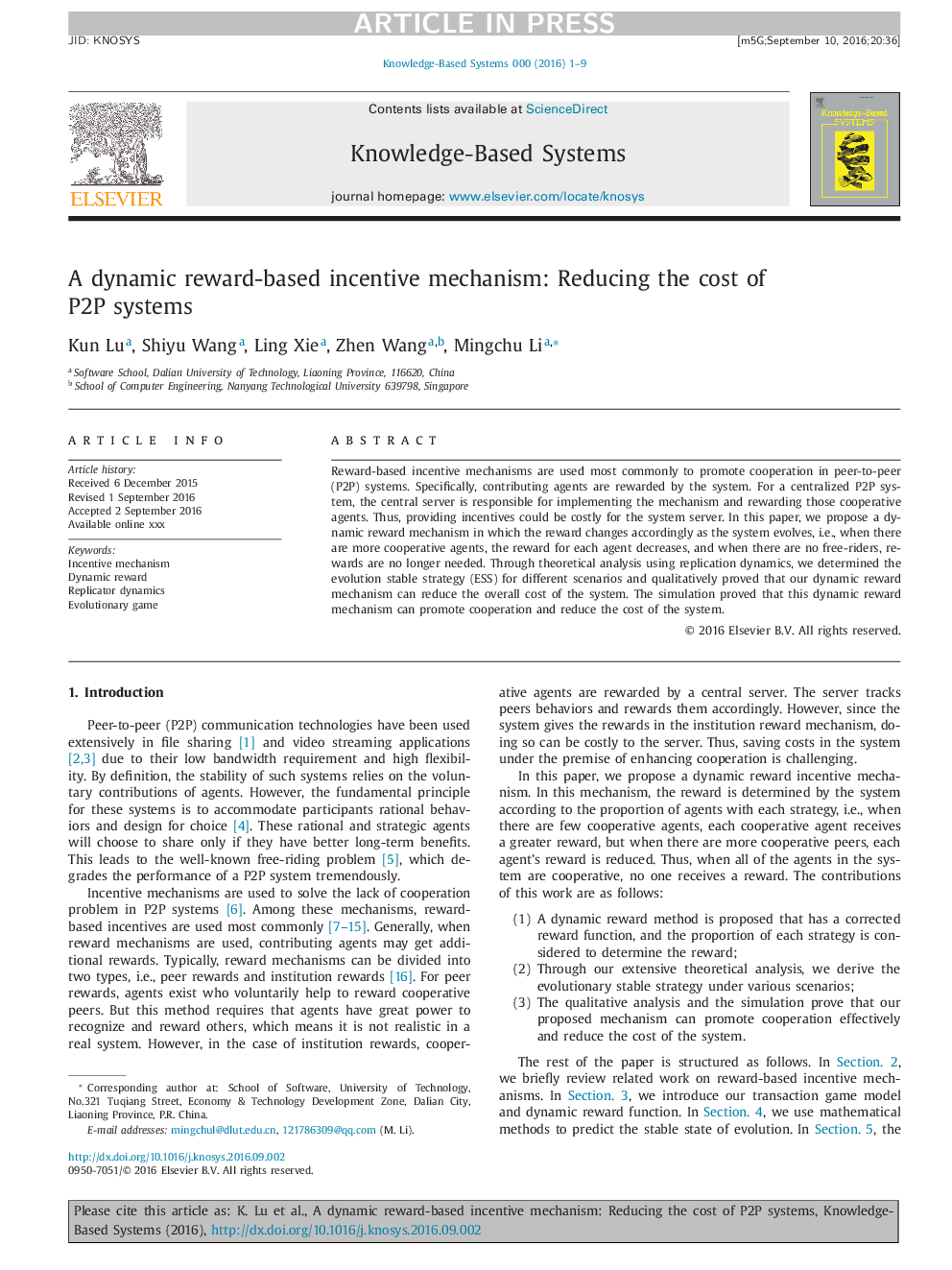| Article ID | Journal | Published Year | Pages | File Type |
|---|---|---|---|---|
| 4946429 | Knowledge-Based Systems | 2016 | 9 Pages |
Abstract
Reward-based incentive mechanisms are used most commonly to promote cooperation in peer-to-peer (P2P) systems. Specifically, contributing agents are rewarded by the system. For a centralized P2P system, the central server is responsible for implementing the mechanism and rewarding those cooperative agents. Thus, providing incentives could be costly for the system server. In this paper, we propose a dynamic reward mechanism in which the reward changes accordingly as the system evolves, i.e., when there are more cooperative agents, the reward for each agent decreases, and when there are no free-riders, rewards are no longer needed. Through theoretical analysis using replication dynamics, we determined the evolution stable strategy (ESS) for different scenarios and qualitatively proved that our dynamic reward mechanism can reduce the overall cost of the system. The simulation proved that this dynamic reward mechanism can promote cooperation and reduce the cost of the system.
Related Topics
Physical Sciences and Engineering
Computer Science
Artificial Intelligence
Authors
Lu Kun, Wang Shiyu, Xie Ling, Wang Zhen, Li Mingchu,
